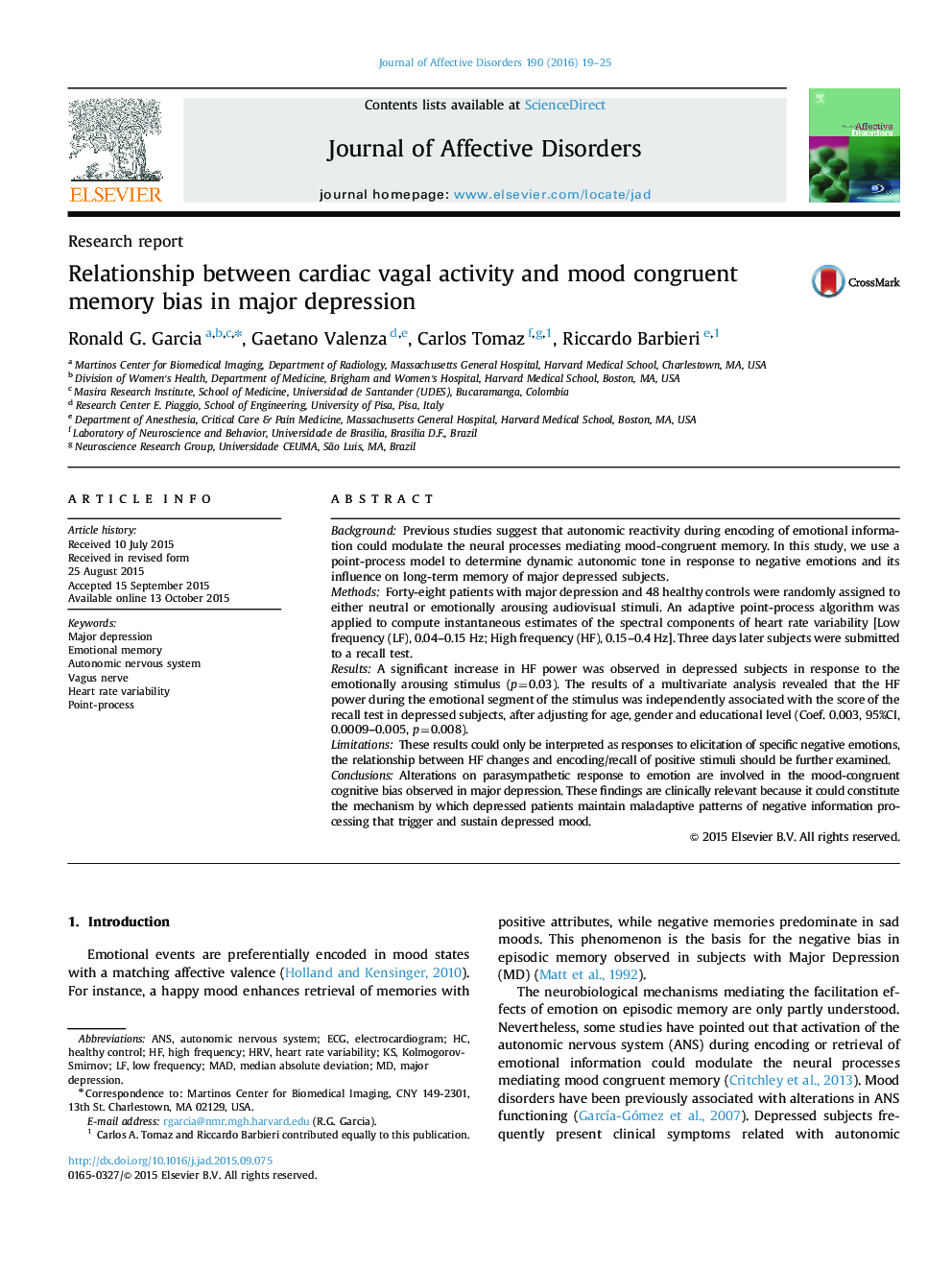| کد مقاله | کد نشریه | سال انتشار | مقاله انگلیسی | نسخه تمام متن |
|---|---|---|---|---|
| 6230646 | 1608135 | 2016 | 7 صفحه PDF | دانلود رایگان |
- We measured autonomic reactivity to negative emotions in depressed subjects.
- A point-process model was used to determine variations in dynamic autonomic tone.
- We determined the relationship between autonomic indices and long-term memory
- Parasympathetic activity increased during the emotionally arousing stimuli.
- Vagal reactivity indices were associated with long-term memory performance.
BackgroundPrevious studies suggest that autonomic reactivity during encoding of emotional information could modulate the neural processes mediating mood-congruent memory. In this study, we use a point-process model to determine dynamic autonomic tone in response to negative emotions and its influence on long-term memory of major depressed subjects.MethodsForty-eight patients with major depression and 48 healthy controls were randomly assigned to either neutral or emotionally arousing audiovisual stimuli. An adaptive point-process algorithm was applied to compute instantaneous estimates of the spectral components of heart rate variability [Low frequency (LF), 0.04-0.15Â Hz; High frequency (HF), 0.15-0.4Â Hz]. Three days later subjects were submitted to a recall test.ResultsA significant increase in HF power was observed in depressed subjects in response to the emotionally arousing stimulus (p=0.03). The results of a multivariate analysis revealed that the HF power during the emotional segment of the stimulus was independently associated with the score of the recall test in depressed subjects, after adjusting for age, gender and educational level (Coef. 0.003, 95%CI, 0.0009-0.005, p=0.008).LimitationsThese results could only be interpreted as responses to elicitation of specific negative emotions, the relationship between HF changes and encoding/recall of positive stimuli should be further examined.ConclusionsAlterations on parasympathetic response to emotion are involved in the mood-congruent cognitive bias observed in major depression. These findings are clinically relevant because it could constitute the mechanism by which depressed patients maintain maladaptive patterns of negative information processing that trigger and sustain depressed mood.
Journal: Journal of Affective Disorders - Volume 190, 15 January 2016, Pages 19-25
